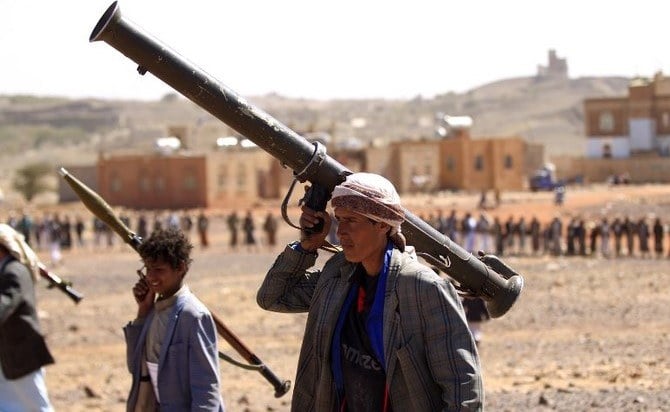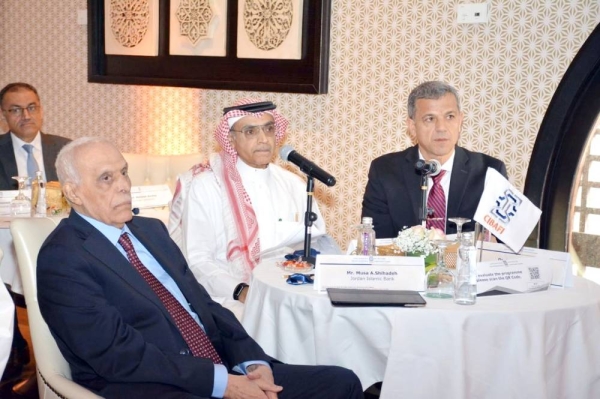
After the Joint Comprehensive Plan of Action, commonly known as the Iran nuclear deal, was struck between the P5+1 world powers and the Islamic Republic in 2015, the Iranian leaders enjoyed a free ride in the global financial system. As financial restrictions were removed, the nuclear deal facilitated the flow of additional international revenues, foreign trade, business dealings and financial capital.
But, as the regular protests in Iran have demonstrated, the major beneficiaries of these funds were not the ordinary Iranian people, but rather Supreme Leader Ali Khamenei, the Islamic Revolutionary Guard Corps (IRGC) and its elite branch the Quds Force, and Tehran’s militias and terror groups across the Middle East.
However, the Iranian leaders’ good fortune appears to have run its course. Several major global financial institutions are tightening their grip on the ruling clerics in order to pressure Tehran into complying with international standards. International Monetary Fund (IMF) spokesman Gerry Rice gave an ultimatum to the Islamic Republic and urged it to strengthen its anti-money laundering and anti-terrorism financing rules by February 2019.
In addition, the Paris-based Financial Action Task Force (FATF), which monitors money laundering across the world, has also given Tehran a deadline to make several reforms. Marshall Billingslea, the US Assistant Secretary for Terrorist Financing, who currently presides over the FATF, warned that: “We expect Iran to move swiftly to implement the commitments that it undertook at a high level so long ago. In line with that, we expect that it will have adopted all of these measures by February. If by February 2019 Iran has not yet done so, then we will take further steps.”
After the nuclear deal, Iran pledged to implement the FATF’s 10 reforms in order to bring its national laws against money laundering and the financing of terrorism. But, as usual, the Iranian leaders’ promises were a collection of words rather than action — with Iran having not acted on all the 10 reforms.
Although the Iranian leaders may shrug off the repercussions of not meeting international standards, the consequences can be extremely severe.
If the Iranian regime does not meet the FATF or IMF requirements, it will be brought back on to the international money laundering blacklist. This would mean that many foreign investors, banks and financial institutions would be reluctant to conduct any kind of dealings with the regime.
Dr. Majid Rafizadeh
If the Iranian regime does not meet the FATF or IMF requirements, it will be brought back on to the international money laundering blacklist. This would mean that many foreign investors, banks and financial institutions would be reluctant to conduct any kind of dealings with the regime. When we combine this with the US sanctions, which took full effect on Nov. 4, such measures would significantly pressure the Islamic Republic and cut off the flow of funds to the regime.
Even if the Iranian leaders make promises that they will comply with the global financial rules by February, it is totally unrealistic to believe that the Tehran regime will fulfill such promises in the future. This is due to the fact that money laundering and terror financing are deeply embedded in Iran’s political and economic structure. In fact, since 1979, terror financing has been a core pillar of Tehran’s foreign policy and a means to achieve its regional hegemonic ambitions and export its revolutionary principles.
In other words, financing terrorism is the raison d’etre of the Iranian regime. That is why Khamenei has repeatedly slammed any effort by parliament to ratify treaties to comply with global financial standards. With regards to the FATF’s requirements, Khamenei stated: “We do not need to approve treaties, which have problems, for their positive aspects. There is no need to accept things for some of their positive aspects when we do not know where they are leading, and when we do know that they have some flaws.”
Halting terror financing and money laundering would mean that the regime would lose its ability to fund and sustain its militia groups and proxies. As a result, the Islamic Republic, which is the top state sponsor of terrorism in the world, will not attempt to clamp down on its terror financing.
The IMF, FATF and UN should have pressured Iran a long time ago for not complying with the international rules on tackling terrorist financing and money laundering. Instead of waiting for these global organizations to act, governments and coalitions of state and non-state actors can impose targeted sanctions aimed at holding the Iranian regime accountable. Many countries are enduring the direct and indirect consequences of Iran’s terrorist financing, money laundering and smuggling.
In addition, governments can impose sanctions on those entities and individuals that are facilitating Iran’s money laundering and funding of terrorism. Many of these entities and individuals are affiliated with the IRGC.
The Iranian regime is a threat to the global financial system. The Iranian leaders ought to be held accountable for not complying with international rules on tackling terrorist financing and money laundering. The blacklisting of the Iranian regime is long overdue. The FATF, IMF and UN must immediately level appropriate sanctions against Iran’s economy in order to cut off the flow of funds to terror groups.
Dr. Majid Rafizadeh is a Harvard-educated Iranian-American political scientist. He is a leading expert on Iran and US foreign policy, a businessman and president of the International American Council. Twitter: @Dr_Rafizadeh
Disclaimer: Views expressed by writers in this section are their own and do not necessarily reflect Arab News" point-of-view












